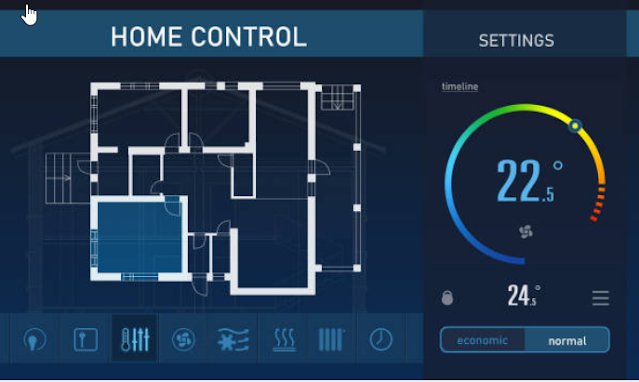HVAC Applications
Where is HVAC used ?
HVAC Applications
HVAC systems are usually used in large buildings, such as office towers, homes, schools, Data centers, ships, planes, semiconductor, Labs, Space and hospitals (just to list a few). They are also used in industrial and commercial settings, such as factories and warehouses.
HVAC systems are used in a variety of applications to provide comfortable indoor environments. In residential applications, HVAC systems are used to maintain comfortable temperatures and humidity levels. In commercial applications, HVAC systems are used to maintain comfortable temperatures, humidity levels, and air quality. In industrial applications, HVAC systems are used to maintain comfortable temperatures and humidity levels, as well as to control air quality.
The commonest use for HVAC systems is for heating and cooling of buildings, but there are other uses. The HVAC system must be able to maintain the building’s internal temperature within the comfortable range of the occupants.
In commercial buildings, HVAC systems are used to control the indoor air quality and temperature. Commercial HVAC systems are more complex than residential systems and are designed to handle the larger volume of air that is required in commercial buildings.
List of HVAC Applications
Each application in HVAC has its own methods and rules to follow in the design process and implementation
- HVAC for Retail Facilities
- HVAC for Public Buildings
- HVAC for Tall Buildings
- HVAC for Places of Assembly
- HVAC for Hotels
- HVAC for Schools
- HVAC for Health-care
- HVAC for Automobiles
- HVAC for Mass Transit
- HVAC for Aircraft
- HVAC for Ships
- HVAC for Industrial Facilities
- HVAC for Enclosed Vehicle Facilities
- HVAC for Laboratories
- HVAC for Engine Test Facilities
- HVAC for Clean Spaces
- HVAC for Data Processing & Telecom
- HVAC for Printing Plants
- HVAC for Textile Plants
- HVAC for Ventilation of industrial Environments
- HVAC for Industrial Exhaust
- HVAC for Photographic Material
- HVAC for Wood & Paper Products Factories
- HVAC for Museums
- HVAC for Libraries
- HVAC for Animals Environmental Control
- HVAC for Power Plants
- HVAC for Mines
- HVAC for Nuclear Facilities
- HVAC for Drying & Storing Farm Crops
- HVAC for industrial drying
- HVAC for Semiconductor Manufacturing
- HVAC for Retail Facilities
- HVAC for Public Buildings
- HVAC for Tall Buildings
- HVAC for Places of Assembly
- HVAC for Hotels
- HVAC for Schools
- HVAC for Health-care
- HVAC for Automobiles
- HVAC for Mass Transit
- HVAC for Aircraft
- HVAC for Ships
- HVAC for Industrial Facilities
- HVAC for Enclosed Vehicle Facilities
- HVAC for Laboratories
- HVAC for Engine Test Facilities
- HVAC for Clean Spaces
- HVAC for Data Processing & Telecom
- HVAC for Printing Plants
- HVAC for Textile Plants
- HVAC for Ventilation of industrial Environments
- HVAC for Industrial Exhaust
- HVAC for Photographic Material
- HVAC for Wood & Paper Products Factories
- HVAC for Museums
- HVAC for Libraries
- HVAC for Animals Environmental Control
- HVAC for Power Plants
- HVAC for Mines
- HVAC for Nuclear Facilities
- HVAC for Drying & Storing Farm Crops
- HVAC for industrial drying
- HVAC for Semiconductor Manufacturing
In conclusion, HVAC is used in both residential and commercial buildings. Residential HVAC systems are usually smaller and less complex than commercial systems. In commercial buildings, HVAC systems are used to control the indoor air quality and temperature. Commercial HVAC systems are more complex than residential systems and are designed to handle the larger volume of air that is required in commercial buildings.
Charles Nehme,
HVAC Global consultant and educator.
Services, books, courses, blog, vlog & much more.


%20connected%20to%20a%20central%20AI%20hub%20displ.webp)

Comments
Post a Comment